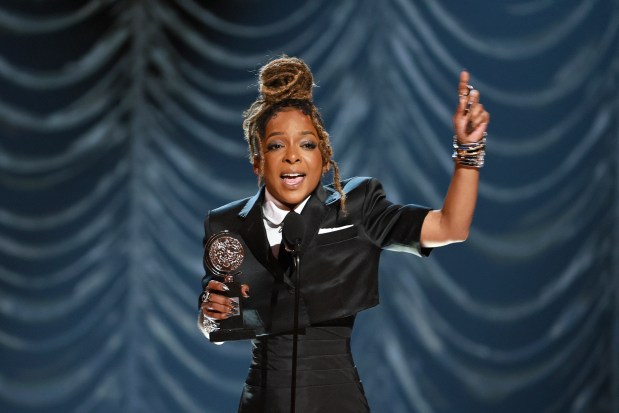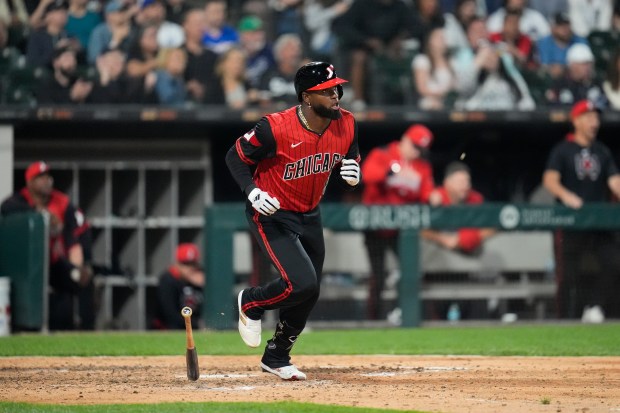Chicago’s minimum wage will get its annual increase Monday, when it will hit $16.20 for most workers across the city.
Chicagoans familiar with the city’s minimum wage ordinance will notice two significant changes this year. First, the minimum wages for large and small businesses are now equal, not tiered. July 1 also marks the first step in the city’s plan to gradually phase out the tipped minimum wage by 2028.
Chicago became the largest U.S. city to agree to independently phase out the subminimum wage when the City Council passed legislation to do so last fall. This summer, the minimum wage for tipped workers will rise to $11.02. The gap between the tipped and standard minimum wages will gradually shrink until they reach parity July 1, 2028.
The planned wage increases come as the U.S. added 272,000 jobs in May, according to the Bureau of Labor Statistics, while the unemployment rate was 4%, up from 3.7% a year ago.
The city’s minimum wage ordinance stipulates that the minimum wage increases at either the rate of inflation or 2.5% per year, whichever is lower. The consumer price index rose 3.3% over the year in May, meaning this year’s increases will not quite match the rate of inflation.
The accrual of paid leave under the city’s new paid time off ordinance — which doubled the city’s existing paid time off mandate to 10 days for covered workers — is to begin July 1 too. Covered employees will begin accruing paid sick leave at the higher rate mandated by the new law starting July 1, and they will also begin accruing paid time off — up to 40 hours a year — that can be taken for any reason.
What is Chicago’s minimum wage starting July 1?
The minimum wage will increase to $16.20 per hour starting Monday, up from $15.80 last year.
In past years, the minimum wage has differed for employees of small and large businesses, with smaller employers being subject to a lower minimum wage. Starting in July, the minimum wage will be the same for non-tipped workers at any business with at least four employees.
“We wanted to give small businesses or small employers an opportunity to slowly catch up,” said Miguel Campos, the Office of Labor Standards’ director of labor standards. “So there was a four-year period when there was a differentiation.”
Are there exceptions?
Yes. The minimum wage law applies to employers who have at least four staff members and to all domestic workers, but does not otherwise apply to employers with three or fewer employees.
People 24 or younger who work jobs coordinated by nonprofits or the government as part of temporary subsidized youth employment programs are subject to a lower minimum wage of $15 an hour.
Overtime minimum wages also apply — minimum overtime rates are $24.30 for non-tipped employees and $19.12 for tipped workers starting July 1.
What is the minimum wage for tipped workers?
In October, Chicago’s City Council passed legislation to phase out the subminimum wage.
In most U.S. states and municipalities, it is legal for employers to pay tipped employees such as servers and bartenders an hourly rate lower than the standard minimum wage so long as they pay out any difference between employees’ tips and the standard minimum wage.
Chicago’s minimum wage legislation stipulates that the gap between the tipped and standard minimum wages will shrink each year until parity is reached in summer 2028.
This year, that means the tipped minimum wage will rise to $11.02 an hour July 1. That’s an hourly bump of just over $2 for tipped workers at small businesses and a raise of more than $1.50 for tipped workers at larger businesses.
Why is Chicago phasing out the tipped minimum wage?
Chicago, where advocacy group One Fair Wage estimates 100,000 tipped workers will be affected by the change, is the largest city in the U.S. to independently eliminate the subminimum wage. Los Angeles already prohibits the practice under California state law, Washington, D.C., has passed legislation to phase it out and a handful of other states — Alaska, Minnesota, Montana, Nevada, Oregon and Washington — also prohibit the practice.
Advocates for eliminating the tipped minimum wage argue the practice makes it difficult for servers and bartenders to predict their earnings, leaves them vulnerable to harassment from customers, and say that restaurant owners do not always make up the difference when workers’ tips don’t reach the full minimum wage.
Opponents have suggested that customers might tip less if they know servers and bartenders are making higher hourly wages, leading to lower overall take-home pay, and have warned that restaurants could struggle, cut staff hours or even close when required to pay higher hourly wages to tipped workers.
Chicago’s legislation — a notch in the belt for Mayor Brandon Johnson and progressive members of the City Council — passed following a push from One Fair Wage, which advocates for the end of the tipped minimum wage throughout the country.
An earlier version of the city’s ordinance would’ve phased out the gap between the subminimum and regular minimum wage over two years. The Illinois Restaurant Association, which pushed back hard against the campaign, referred to the final deal as a “compromise we can accept.”
Legislation to eliminate the subminimum wage in Illinois stalled in Springfield earlier this year, though advocates have vowed to keep pushing for it on the state level.
What is the minimum wage in the suburbs?
It depends on the suburb. The Cook County minimum wage will rise to $14.05 an hour on July 1. For tipped workers, the county minimum wage will remain $8.40.
But not all municipalities in Cook County follow the county minimum wage, because municipalities are permitted to enact their own minimum wage ordinances.
The municipalities that follow the Cook County minimum wage are Barrington Hills, Berwyn, Countryside, Deerfield, Dolton, Evanston, Glencoe, Kenilworth, McCook, Northfield, Oak Brook, Oak Park, Phoenix, Skokie, University Park, Western Springs, Wilmette and Winnetka, according to Julia Epplin-Zapf, a policy analyst for the county’s Department of Human Rights & Ethics.
All municipalities in Illinois must follow, at minimum, the statewide minimum wage of $14 an hour and $8.40 for tipped workers. The state minimum wage follows a different increase schedule than the city and county and will rise to $15 an hour on Jan. 1, 2025.
I’m not sure if I’m being paid correctly and/or I want to file a complaint.
Workers with questions about the minimum wage can call the Office of Labor Standards at 312-744-2211 or reach out via email at bacplaborstandards@cityofchicago.org, Campos said.
Complaints can be filed by downloading a complaint form from the department’s website, calling 311, or using the CHI 311 mobile app, Campos said. Complaints can be filed anonymously, he noted.




